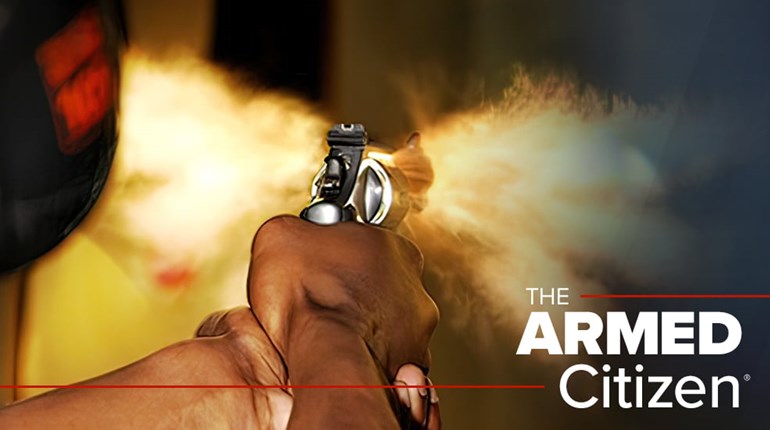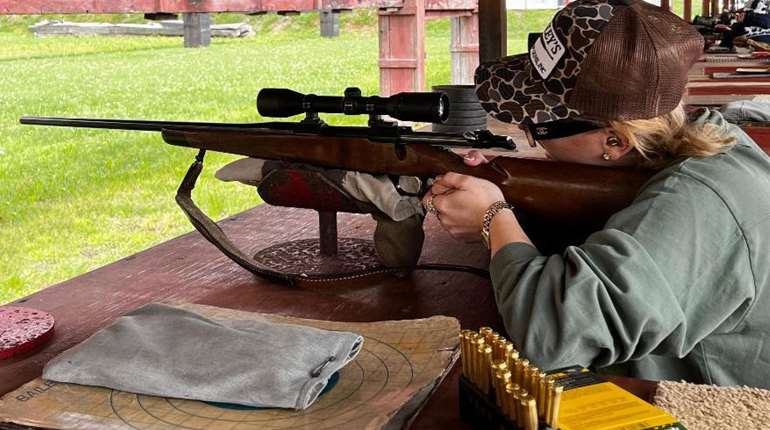
In 2016-17, I was deployed to Afghanistan as an operations officer with the Central Intelligence Agency. One day as I emerged from the shower in my quarters, I saw something as frightening as anything else I’d faced overseas when I noticed that my iPhone had a “motion detect” alert … but I’m getting ahead of myself.
Before I departed for Afghanistan, I installed a security camera by my garage door and one on the back deck. I didn’t really think they were necessary, but I thought it would be a worthwhile precautionary measure for my wife, teenager and three young children. We live in a beautiful, crime-free neighborhood in a small town. The idea of criminal violence occurring in my neighborhood seemed a very remote possibility. But the system was on sale, and I thought, “Why not?” The two cameras came with an application that would alert me when it had a “motion detect,” and allowed me to view the scene on my phone or computer. Usually it was due to a bug, a tree limb blowing in the wind, or one of the deer that enjoy eating my wife’s plants. This time, however, when I casually looked, there was a Caucasian male wearing a ball cap, collar up, with a backpack, and he was using the light from his phone to look inside my garage—but the time back home was 4:20 a.m.
I suddenly had a sinking feeling, a growing rage and a sense of utter helplessness, all at the same time. After watching for a few moments, I received a second motion detect on my back porch. That motion detection revealed an African-American male dressed in a similar fashion, and he was testing the doors and windows. He had what looked like a possible firearm in his hand. At this point, I made a FaceTime call to my wife. She was, of course, in a deep sleep. I told her as calmly as I could that I believed there were two intruders outside of the house, and confirmed with her that our teenager was at home. He was. After she viewed the motion detects, I told her to go get the shotgun, load it, and tell me when she had it. She calmly stated “OK,” and went to retrieve it. I could hear her trying to load it, but she came back and said that she was having trouble—not surprising as it was a recent purchase and we had only had time to shoot it once in the woods on a friend’s property. I told her to forget the shotgun, go get the pistol and rack it one time (which would put a round in the chamber), and tell me when she was ready. She did this with ease because she had shot the handgun at least a half dozen times.
I suddenly had a sinking feeling, a growing rage and a sense of utter helplessness, all at the same time.
A word about my lovely wife: She is, without exception, the nicest person I ever met. She will—literally—apologize to a fly before swatting it and then feel guilty about it afterward (noting that “it wanted to live too.”) But now the prospect of intruders outside meant that our three youngest children—then aged two, five and eight, as well as our 17-year-old—were now in danger, and her protective instincts were in full swing.
I told her to go down the hall, grab the teenager along the way, stand in the doorway of the kids’ room, dial 9-1-1, speak slowly and clearly to the operator (she was born outside of the U.S. and has an accent), and most importantly, if anyone came up the stairs, to “shoot them.” Finally, I told her to call me back after she had contacted 9-1-1. She calmly signaled her understanding and took off down the hall. I was as amazed at her focus and determination as I was worried.
Meanwhile, as I was waiting for her to call me back, I received a third motion detect that revealed a third intruder, also on the back deck. I observed him testing the windows. By now I was frantic and wondering why my wife had not called me back. From my room in Afghanistan (the wonders of technology), I was able to web-search and call the number for my hometown police. They asked for my address, and when I told them, they stated that was the jurisdiction of the county police, and put me on hold while they transferred my call. After what felt like a lifetime, the county police operator was on the line, assuring me that they already had officers on the scene.
“Did you catch anybody?” I asked.
“No,” she responded. “They fled the scene.”
After another eternity, I was able to call my wife back. She told me that the 9-1-1 operator kept her on the line from the time she called, which was why she did not call me back. When the operator told her the patrol car had arrived, my wife still could not see it, so she (correctly) kept the operator on the line. Then when she finally did see the patrol car, she told the operator that she had a dog and a firearm, and needed to put both away. She was amazing.
The police response, sadly, was not as impressive. They initially did not believe her until she showed them the video. We sent them copies of the videos, which they lost, and I had to resend them a few days later. They missed that one of the intruders had cut the screen of our porch door to access the porch. They claimed there were two intruders and not three until I pointed out in detail why there were three, to which they then agreed. Weeks later, they claimed that they had the suspects “under surveillance” (although having done my fair share of that throughout my career, I knew what kind of assets were required to truly put one person under surveillance, much less multiple suspects). A few weeks after that, the police dropped the case because the prosecutor did not think the pictures were clear enough to present in court. The lesson there was clear: Don’t assume the authorities know what they are doing. And don’t assume they will arrive in time if you really need them.
This is a hard lesson. We are taught from an early age that the authorities will respond appropriately. But the reality is responses by authorities will vary in effectiveness and professionalism. Don’t bet your life or the lives of your family on the authorities being there the moment you need them—even the most effective, professional law-enforcement officers are bound by the laws of space and time. You must be your own first line of defense.
The next day, as the gravity of the situation sunk in, my wife let her emotions about the event come out—a completely natural response to what had transpired and a necessary component to dealing with a traumatic event. But in the moment she performed flawlessly, even upon being woken from a deep sleep, and despite her gentle disposition and complete lack of exposure to this kind of stress. That’s proof that you can replicate her smooth and effective response to danger, too, with a modicum of preparation and an attitude of perseverance.
Read the rest this story and what the author's wife has done to further her preparedness: PracticingHomeDefenseWhileDeployedPart2
About the Author: Robert Montgomery was an Operations Officer in the CIA for 34 years and served in some of the most dangerous locales on the planet. He’s also a former Marine and the founder of Guard Well Defense, LLC. Robert teaches training courses such as “Combatives for Women,” “Improvised Weapons,” and “Street Smarts for Students and Business Persons,” designed to help anyone mitigate and deal with unexpected violence. He is the father of six wonderful children and husband to an amazing wife. He will publish a book on self-protection in the summer of 2020 called, “Seconds to Live or Die—Life-saving Lessons From a Former CIA Officer.”















































